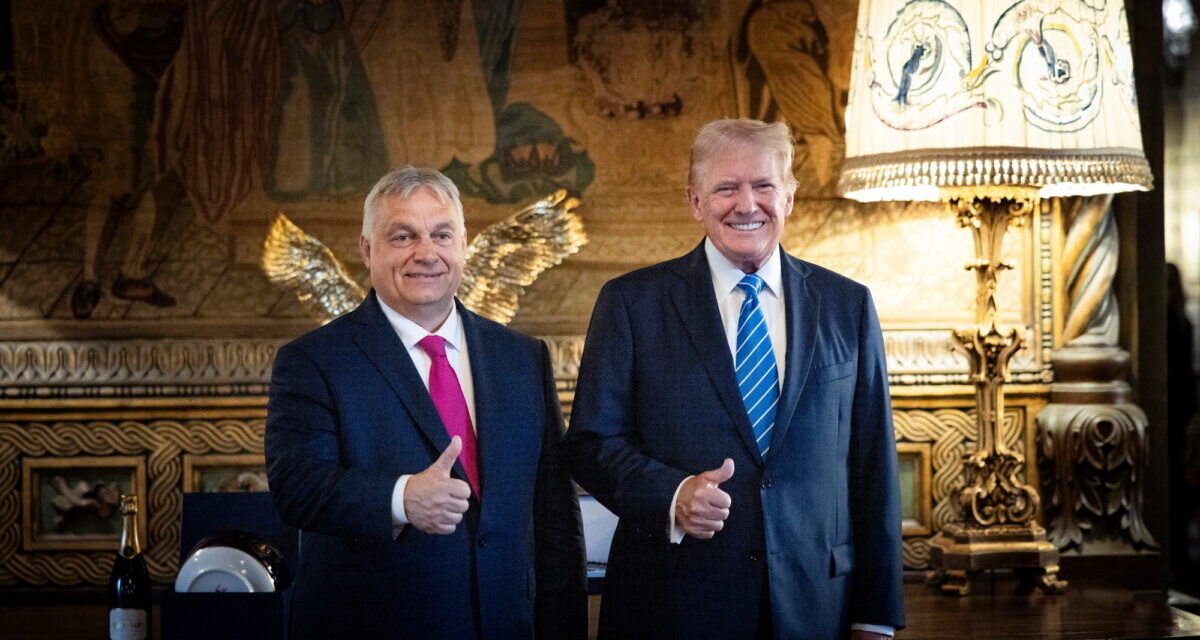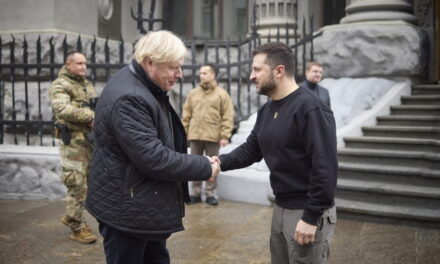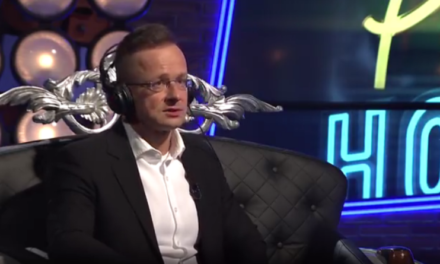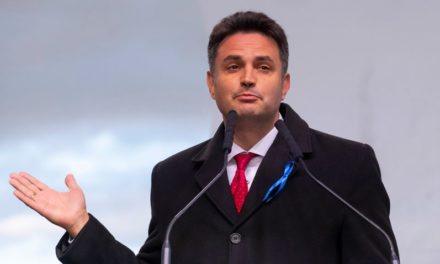The fact that pro-war politicians from Brussels do not come to Budapest and boycott the events of the Hungarian presidency will not end the desire for peace of the majority of European and American people, nor will the unity of the EU/NATO be restored. Written by Zoltán Kiszelly.
The fear in Brussels is understandable: while the EU and NATO are trying to finance the war for five more years, Viktor Orbán went on a peace mission and showed that there is indeed an alternative to war. The other two prime ministers of our presidential trio (the Spanish and the Belgian) have done nothing for peace in the same way as the leaders of the Brussels commission, even though the majority of Europeans, Americans and now Ukrainians are also tired of war and want peace.
As time goes on, it will become more and more difficult for the globalist mainstream to sell war as a political product to the voters of the Western world.
This year's research by the End of Century Europe Project also shows that Europeans reject the further escalation of the war, for example the sending of Western soldiers to Ukraine. French voters also expressed their opinion on this at the ballot box and punished President Macron well, who raised this idea back in February. The other pro-war European governments, parties and politicians were also downgraded, especially the Atlanticist German Greens and the German Socdems drifting along with them.
And in the USA, Donald Trump, who wants to create peace "within 24 hours", is considered the main candidate for the November presidential election.
Two-thirds of the world, called the Global South, considers what is happening in Ukraine to be a European regional conflict, at most a proxy war of the West against Russia and China, and for which they mostly pay the bill with wartime inflation, increased food prices and skyrocketing energy costs.
The war also drains money from the pockets of Europeans, the pro-war governments save money on their own people, while they pour countless amounts of money into weapons intended for Ukraine.
Of course, there are those who do well with the war: speculators, banks and investment funds bought themselves into the arms manufacturing companies at an early stage, or as US Secretary of State Anthony Blinken said in an honest moment in December 2023: "Nine out of every ten dollars intended for Ukraine end up in the United States."
This war is also only good for a few, but these few control the political and media elite of the West, their people are now in power in Washington and Brussels. This pro-war elite does not tolerate alternatives to their political goals, or when they are confronted with the consequences of their political decisions.
They especially do not tolerate it if more popular alternatives than theirs are formulated. How do we know that, compared to the mainstream policy of Brussels, there are almost only more attractive alternatives?
"Everyone wants peace!" - they say in Brussels, but when they are asked why they send tanks, ammunition and now F-16 fighter jets to the war, they no longer have a solid answer.
So peace is always a better solution than war, but after two and a half years of the war in Ukraine, both Europe and the USA are tired of war and its consequences. The public opinion polls also show this: the 2024 data of the End of the Century Europe Project in most European countries not only show a strong desire for peace, but also how few people feel the globalist elite's war is "their own" and would be willing to fight and die for their profit .
After last year's unsuccessful counterattack, the proportion of Ukrainian respondents committed to the war, according to Gallup's time-series research, fell from 70 percent in 2022 to 60 percent in 2023, which further melted to 48 percent in 2024. The division of Ukrainian society is also shown by the recent research of the Carnegie Endowment for International Peace, which clearly shows that
rather, the 60+ generation of Ukrainians supports the continuation of the fight, while the age group younger than 35, endangered by conscription, is no longer enthusiastic.
Ukraine is also getting tired of the war, which is also shown by the fact that there are hardly any volunteers for the army anymore and those who can try to flee abroad, like the 32 men who recently broke through the Ukrainian-Hungarian border in a military truck.
Western society clearly sees that this war cannot be won any time soon, so when asked by The Institute for Global Affairs whether NATO member countries can persuade the warring parties to negotiate peace, 94 percent of American respondents and 88 percent of Western Europeans answered yes, and the proportion of respondents who would fight until Ukraine's pre-2022 borders were restored was below 20 percent.
Western European respondents who support peace negotiations see exactly that negotiations should be held as long as Ukraine is in a favorable situation (17%), but they also see how many people have already died in the war (51%), but also that they perceive that the West does not have the industrial-military base to successfully end the war (20%).
As time goes by, the support for war and escalation is decreasing, but in Brussels, at the headquarters of the EU and NATO, they are not working to adapt the policy of the elite to the will of the people, but rather the opposite: they are mastering how to support the war "Trump -permanent" and ensure it for another five years, bridging the presidency of Donald Trump between 2025 and 2029.
The amount of money poured into the war will also increase year by year:
in February this year, the EU already accepted a 50 + 20 billion euro war loan, which was supplemented by a one-year war loan of 40 billion euros at the NATO summit. The latter point fits in with the proposal of the outgoing NATO Secretary General, Jens Stoltenberg, to support the war with 200 billion euros over five years, which the American and German politicians who are about to be re-elected did not dare to accept at the same time, so at most they will "extend" the now accepted war loan.
It is justified to talk about a war loan, because two-thirds of EU and American war aid are loans, which – in principle – Ukraine will have to pay back, if it can and wants to. If - which is much more likely - Ukraine cannot repay the war loans, European and American taxpayers will pay the bills.
The Hungarian presidency of the EU not only makes all of this a matter of course, but also offers a viable political alternative to Brussels' pro-war policy: Viktor Orbán used the opportunity of a constructive stay, so Hungary does not support the continuation of killing and destruction with money, weapons, or Ukrainian-Hungarian border crossings .
Seeing the above, many Western European and American citizens would expect such a policy from their own leaders. It is understandable if pro-war politicians prefer to avoid confrontation and do not come to Budapest.
The fact that pro-war politicians from Brussels do not come to Budapest and boycott the events of the Hungarian presidency will not end the desire for peace of the majority of European and American people, nor will the unity of the EU/NATO be restored.
All that happens is that the war supporters stay in their own bubble in Brussels, where they bully each other. We are lucky: the numbers show that this bubble is getting smaller and smaller, while the pro-peace camp is growing.
Cover photo: Prime Minister Viktor Orbán (b) meeting with Donald Trump at the former US president and Republican presidential candidate's Florida residence in Mar-a-Lago on July 11, 2024.
Source: MTI/Prime Minister's Press Office/Zoltán Fischer













